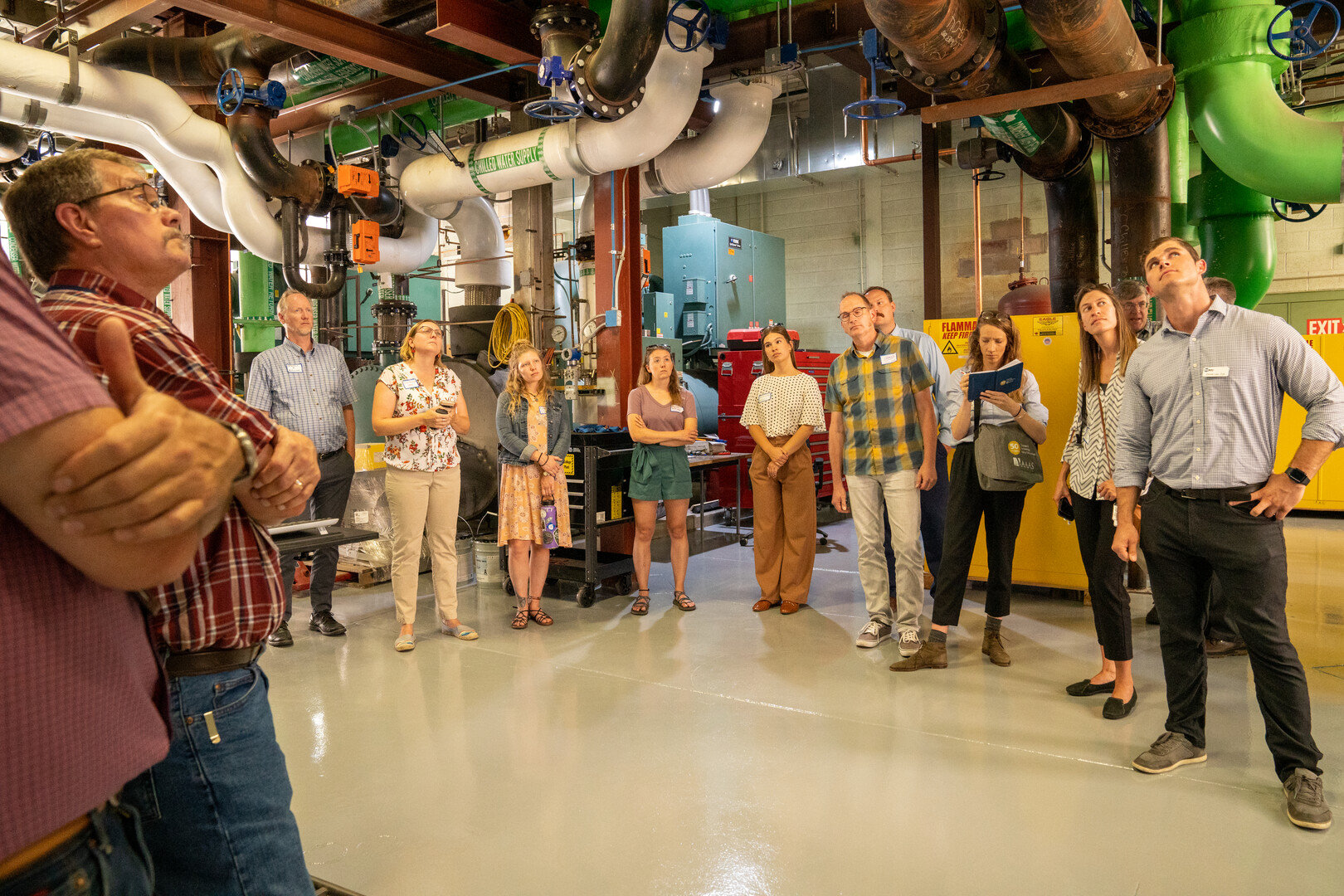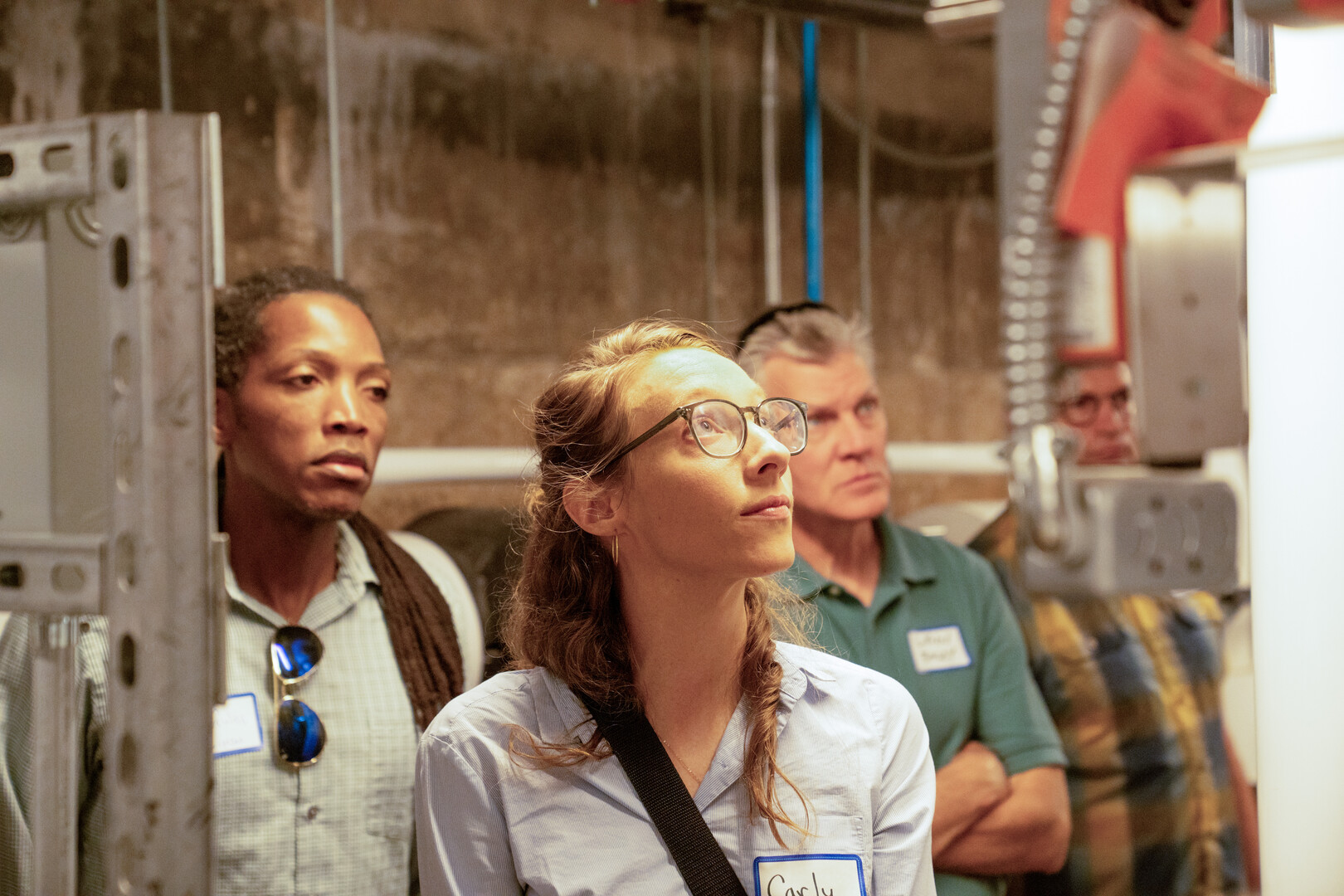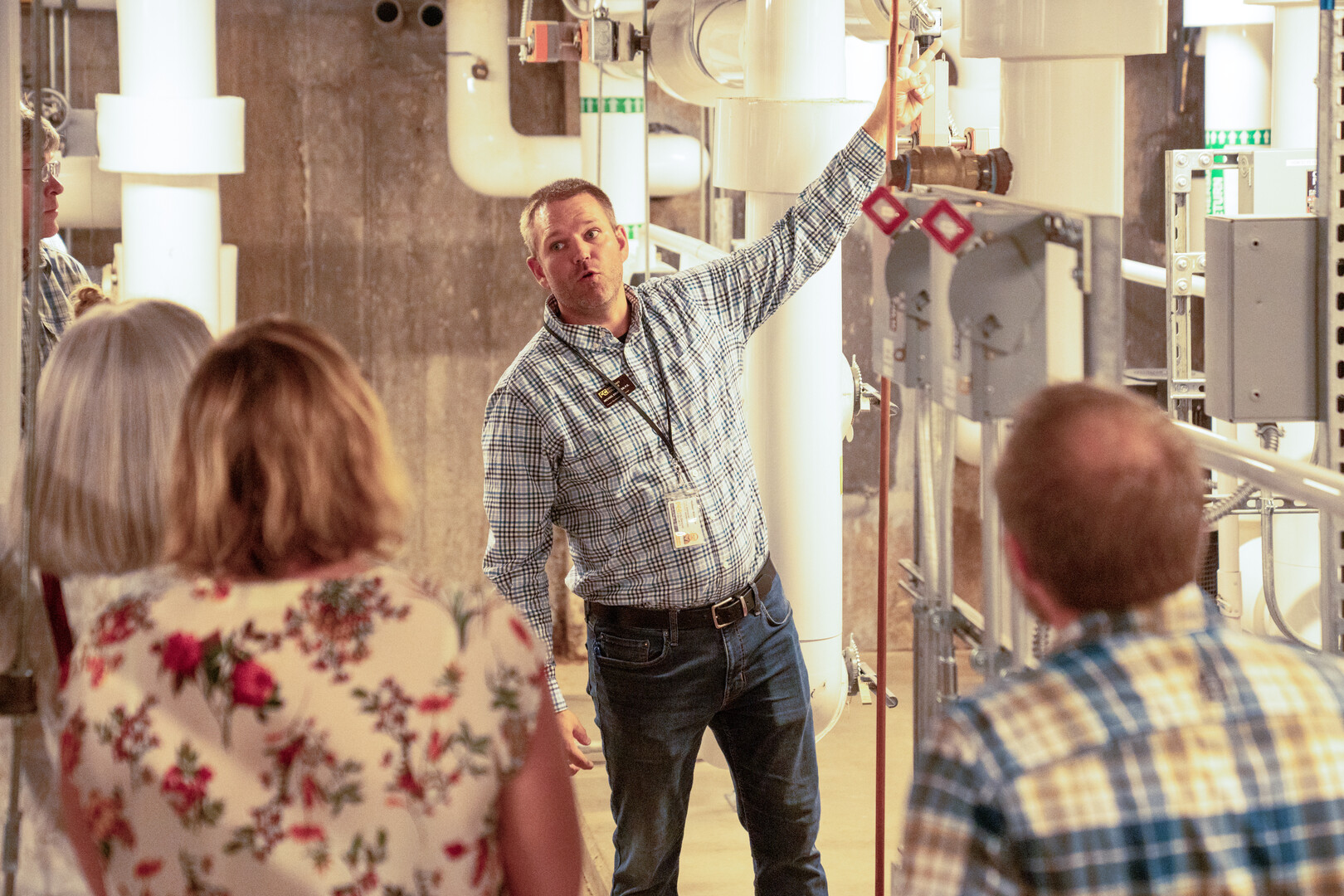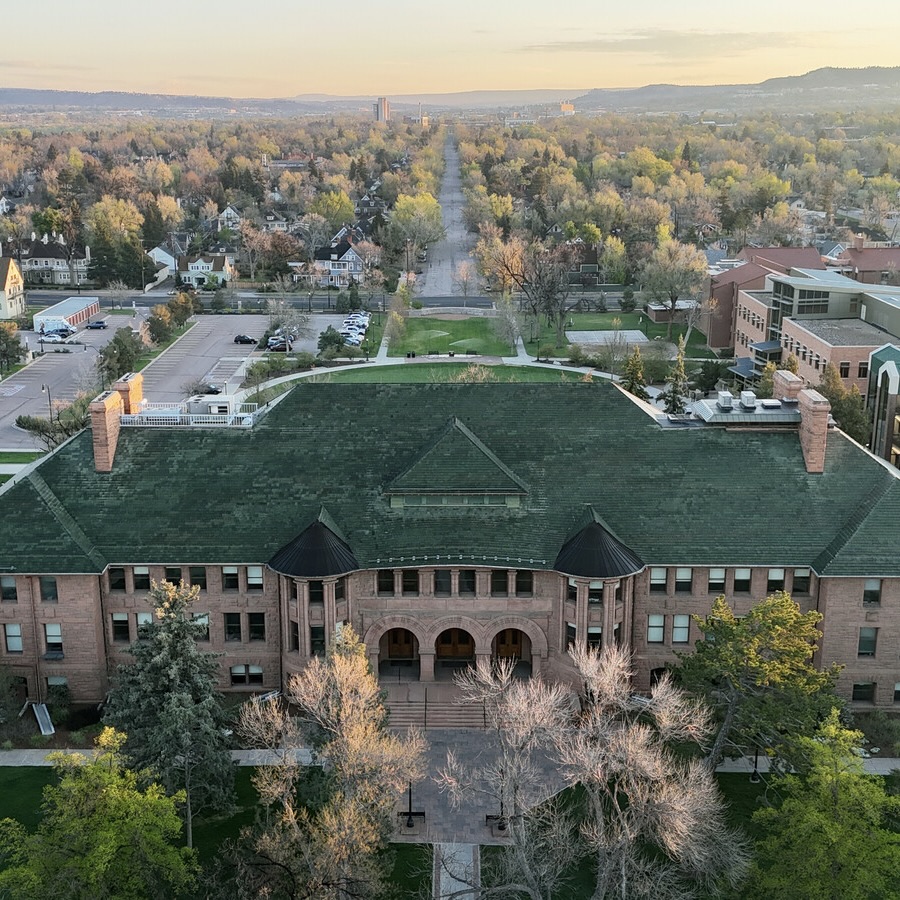Just three years after Colorado College became the first campus in the state to achieve carbon neutrality, it’s taking the lead in creating a clean energy future across Colorado. On September 7, CC hosted the Colorado Energy Research Collaboratory for a Colorado Net Zero Campus Forum, highlighting how the institution achieved this goal in a mere decade using widely available technologies and solutions.
“We have the unique opportunity to use our campuses as living laboratories to not only try potential solutions, but also to involve and develop the next generation of leaders in this work in a way that other sectors don’t usually have.” –Ian Johnson, Director of Sustainability
Colorado College Director of Sustainability Ian Johnson and Campus Operations and Plant Manager Michael Brubaker showed the Collaboratory members the various work CC has implemented by touring Tutt Library and the Central Plant. The Collaboratory learned how Tutt Library became the nation’s largest academic net-zero energy library following a massive underground geothermal energy project.
The Collaboratory consists of people from the National Renewable Energy Laboratory (NREL), Colorado School of Mines, University of Colorado at Boulder, Colorado State University, and now, Colorado College. The schools seek to share ideas and strategies around a fossil-fuel transition to net-zero.
“We have the unique opportunity to use our campuses as living laboratories to not only try potential solutions, but also to involve and develop the next generation of leaders in this work in a way that other sectors don’t usually have,” says Johnson.
CC achieved neutrality through a variety of initiatives, including efficiency upgrades, building renovations, campus engagement, on-site renewable energy, and local renewable energy purchases, reducing its carbon footprint even as its physical footprint expanded by 10% through the alliance with the Colorado Springs Fine Arts Center in 2017.
“One of the keys to our success has been CC students’ grassroots efforts to further sustainability on campus and in our community,” says Brubaker. “Without their efforts, a lot of this wouldn’t have been possible.”
Colorado College’s journey and methods to reach that milestone are amongst the most replicable of those used by any institution.
“We have not relied on any particularly novel or unique solutions, but rather have focused on steady reductions in emissions using widely available technologies and solutions, so our experience is applicable and needs to be disseminated for others to adopt and adapt to their unique locations and operations,” adds Johnson.
The Collaboratory meets several times a year at different campuses to create space for collaboration, sharing resources, learning opportunities, and potentially building coalitions with external partners, such as government, industry, philanthropic organizations, and utilities. Engineers from Colorado Springs Utilities attended the forum, as well as folks from the Colorado State Energy Office and a geothermal engineering company.
Johnson and Brubaker are both excited CC is able to demonstrate success and be part of ongoing efforts to continue the work.
“For me, being part of this forum has really demonstrated that our institutions all have the same challenges when it comes to sustainability and reaching net-zero carbon goals,” says Brubaker. “Being able to regularly meet with our peers and collaborate on our successes, and failures, has energized and helped us to focus on what comes next for CC.”
“We view the Collaborative as an integral part of the pathway to a power sector free of carbon emissions by 2035 and an economy free of greenhouse gas emissions by 2050 in Colorado,” adds Johnson.








